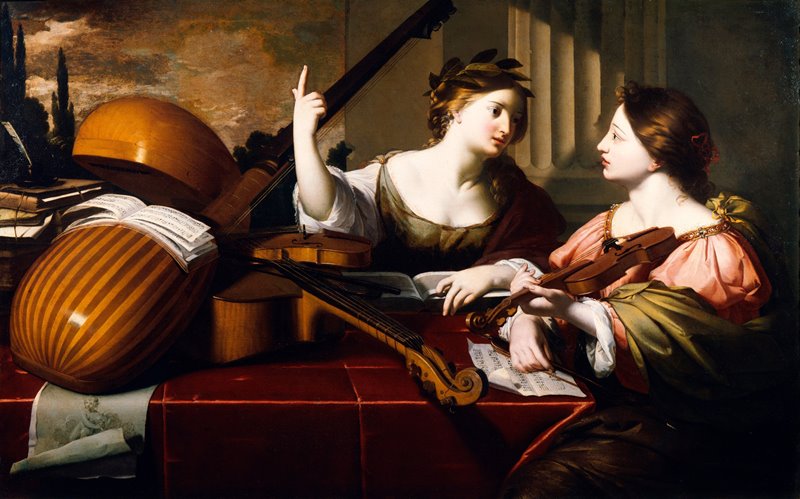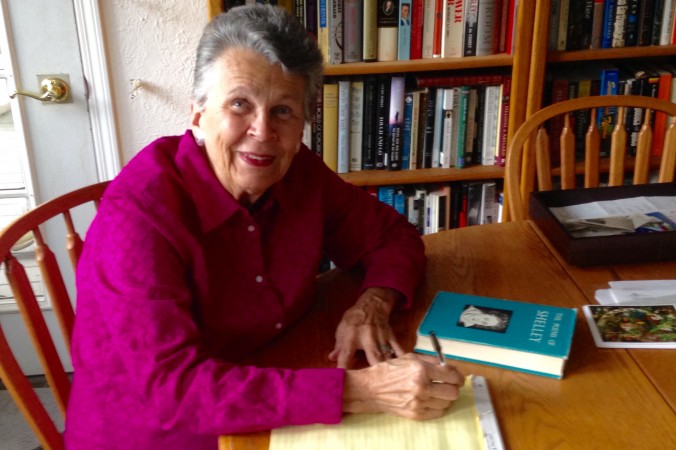Spirit
Where once a spirit, pure and bright,
Would sail on gossamer wings of light
And pass through realms of endless night
Amid the stars in blissful flight,
Now life resides in flesh and bone,
Amid the masses, yet alone,
Concealing sins he must atone,
The cares of life a heavy stone.
Where, now, the music of the spheres?
The song is sung, and yet, who hears?
Can heaven’s voice reach mortal ears
When drowned by mortal pain and tears?
And, should the spirit find the key
To break these bonds and set him free,
Will the lessons of mortality
Have stained him for eternity?
The Harvest
It’s what you’ve learned to feel in life
That you will feel in death;
The love or hate that fills your heart
Will fill your dying breath.
The machinations of this world
Are but a stage for learning;
The fires that fuel the spirit
Are what keep the wheels turning.
Each moment on this earthly plane
Is one more chance to grow,
But what you’ll harvest is your Self;
Be careful what you sow.
Lorna Davis is a poet who is happily retired and living in California.
















Beautiful verse; I love it!
Thank you!
I enjoyed these as well, Lorna. Nice work.
Thank you, Reid!
Ethereally beautiful!
Hello, I’m a student who’s studying your poem
“November” in English class. Would you share a little about the theme, intent, symbolism of the poem?
Hello Cam Bill, I hope this isn’t too late to be of use to you. “November” is a poem that uses the seasons of the year, the seasons of a life, and finally the seasons of empires to make the point that all things pass, and we should treasure the time we have. The “golden days of late October” relate to that time of life when the children are grown and established in their own lives, we are hopefully financially stable, and we can enjoy the fruits of our life’s labors. But as time and age progress, we are reminded that we are aging. The November of life presents itself in achy knees and weaker hands, and the gray that shows up in the mirror. Winter is approaching, and our own mortality with it.
During the time that this was written, I was reading books about the Byzantine Empire at night. I have always loved history, and would love to have seen many of the old cities at their peak – Constantinople, Rome, Athens, Persepolis. This is the “wistful longing” of the 3rd stanza. Every Golden Age has had its spring, its summer of growth, its October glory, and its long fade into winter. Evidence of Byzantium is scattered throughout the modern city of Istanbul, in random stone, ruins of walls, even the intact cistern of Justinian, still silently serving its purpose underground. But that era has passed. All we are today will be history tomorrow. Plans and schemes matter, but give some attention to the moment. It won’t be here long.
As far as intent goes, I don’t always know until the poem tells me. This started as just a feeling I had every year in my garden when the sun shifted to the south and the shadows lengthened. I played with lines every year, (the sunlight that “leans against the south walls” is from that time) but nothing worked, and I would put it away until the following year. One year, when the last of the leaves had fallen, and the sky was filled with low, gray storm clouds, new first lines appeared and the poem flowed from there. I wasn’t happy with my first final couplet (something about sharing a glass to memories – meh) so I put it away for about another year again. It wasn’t until the right couplet showed up that the poem’s intent, and the point of that initial feeling, became clear. I don’t know if the process works like this for others, but it often does for me.
That was probably than you wanted to know, but feel free to ask if you have more questions. Good luck with your studies.